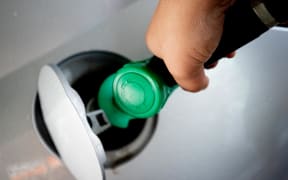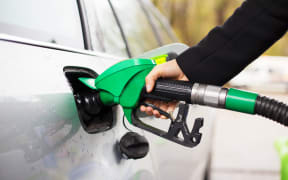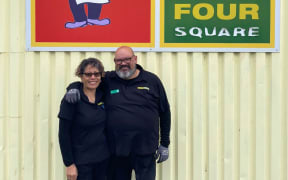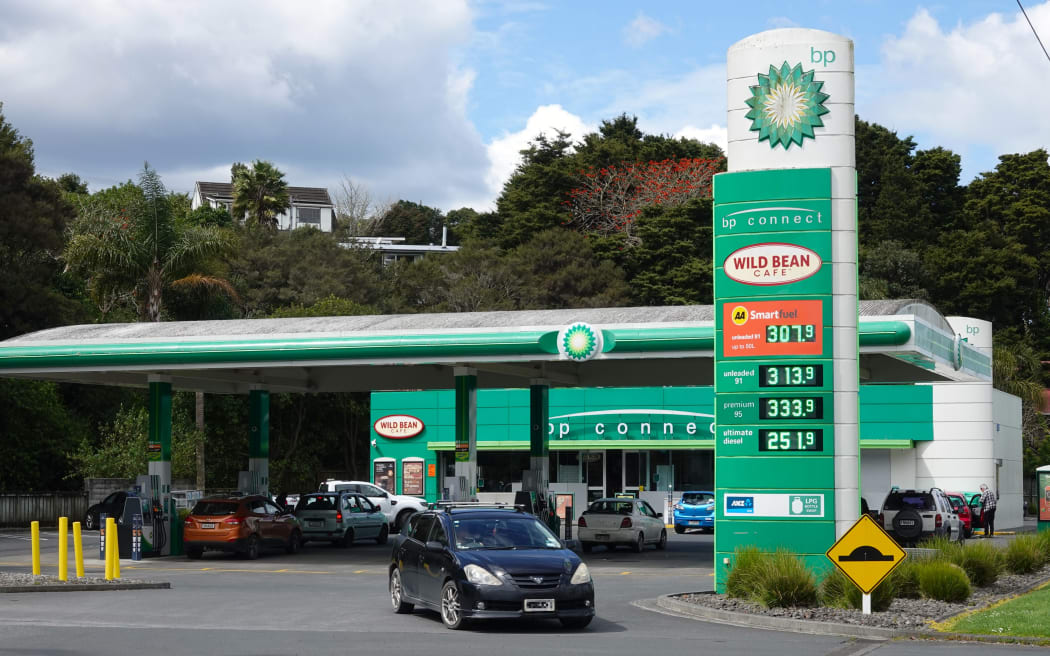
The Commerce Commission says petrol prices in Whangārei are the highest in the country, despite the city's proximity to the fuel import terminal at Marsden Point. Photo: RNZ / Peter de Graaf
Whangārei residents are demanding answers about why they are paying the highest petrol prices in the country - despite living closest to New Zealand's main fuel import terminal.
The rising cost of fuel, with 91-octane petrol now topping $3 a litre, has refocused attention on petrol price anomalies around the country.
Earlier this month, the Commerce Commission issued a "please explain" to New Zealand's big fuel companies, after it found motorists in Northland's only city were paying more than anyone else for petrol.
Motorists filling up in Whangārei this week told RNZ they could not understand why their city had the nation's priciest petrol.
Max said Whangārei prices were "absolutely ridiculous".
"I can go down to Auckland and they have it cheaper, and they have a 10 cent tax on theirs. And I can go further north and get it cheaper than I can in Whangārei. I don't know what it is, but it's very disappointing. It makes it really hard on the pocket, I tell you."
Russell said petrol in Towai, the rural settlement where he lived about 40km north of Whangārei, was 10 cents a litre cheaper than in the city, and diesel was about 20 cents less.
Another driver, who did not want to give her name, said Whangārei prices were "outrageous".
"Rural areas are cheaper than us, Dargaville is cheaper than us. I can't believe it.
"I can't afford to get the kids to school on certain days. It's just overwhelming really. This will probably be the only time this week I fill up, or not even fill up. I might get $40 and that'll be 16 litres, maybe," she said.
Another motorist, a solo mum, said she had to choose carefully when she used the car. Often she and the kids had to car pool, or walk, if that was possible.
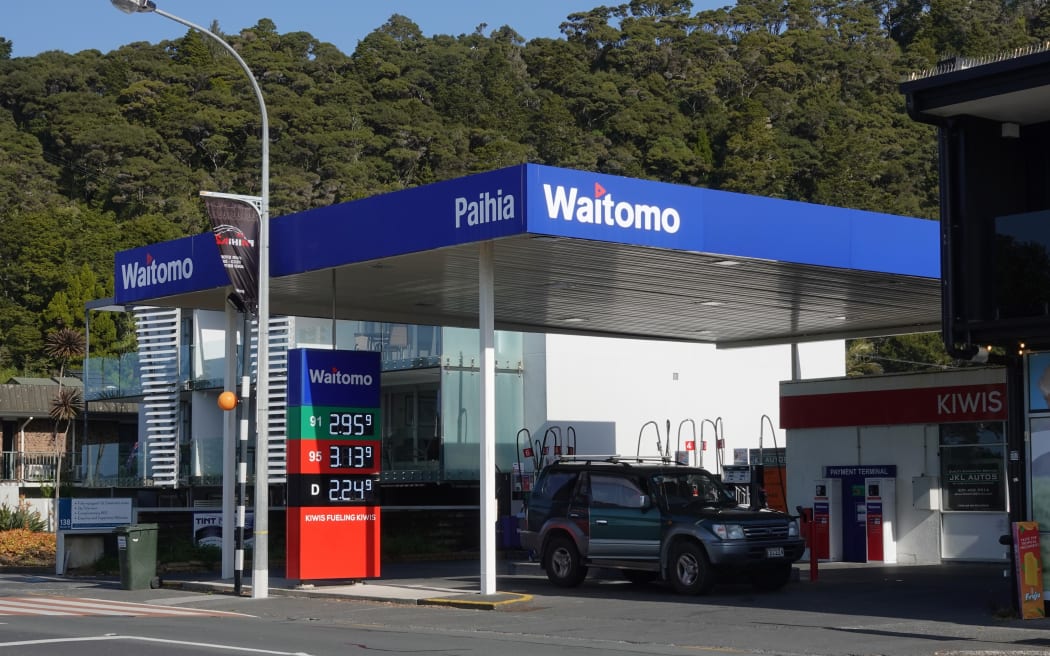
Last week Waitomo in Paihia was selling 91-octane petrol for 20 cents a litre less than some service stations in Whangārei, even though it's 70km further away from the fuel import terminal. Photo: RNZ / Peter de Graaf
Earlier this week, the cheapest fuel RNZ could find in Northland was at Waitomo, a self-service outlet in Paihia, 70km north of Whangārei.
There a litre of 91-octane petrol was 20 cents cheaper than at many service stations in Whangārei.
Whangārei Mayor Vince Cocurullo said he hoped the Commerce Commission's investigation would shed some light on the city's high fuel prices.
"It would make logical sense for those who are closest to the terminal point to have the cheapest fuel, and as you go further out, the costs should increase," he said.
In reality, for reasons he could not understand, it was the other way around.
"Do I think it's fair? No, I don't. I think it's rather disappointing actually for petrol companies to be keeping Whangārei residents in a position where they are struggling to afford things."
Cocurullo said the pricing was especially unfair given Northland's high rates of deprivation.
With few electric vehicles and virtually no public transport outside Whangārei's city limits, most people had no choice but to use petrol to access jobs, education and health services.
"I would love to see the Commerce Commission come out and actually make a recommendation, and for central government to enforce it. However, what I'm seeing at the moment is everyone's making excuses and saying it's someone else's fault."
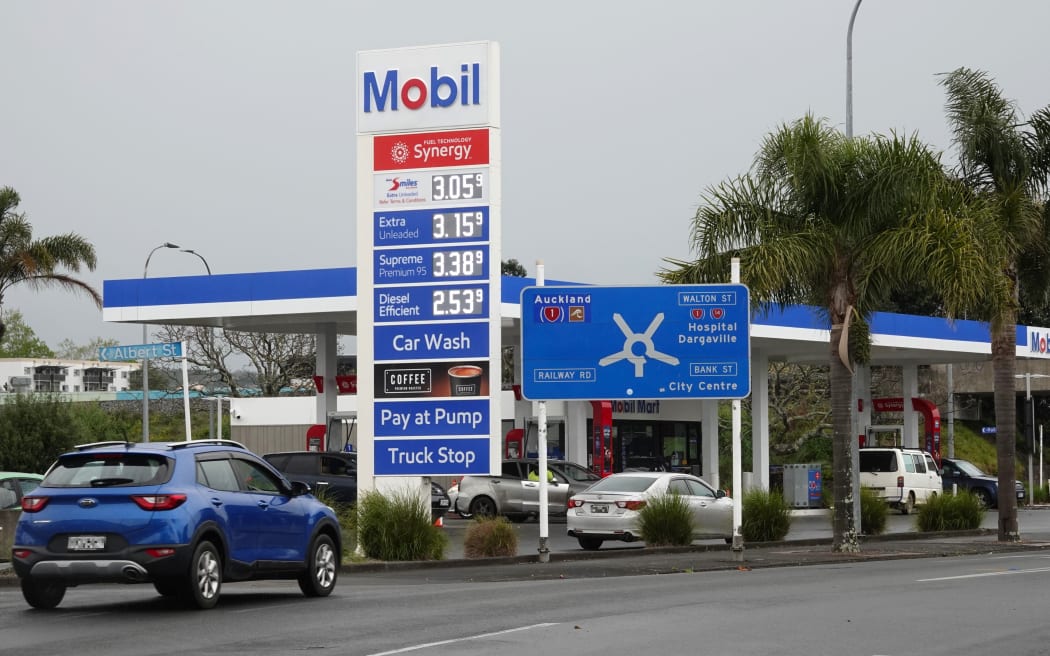
Whangārei motorists spoken to by RNZ said they could not understand why their city had the nation's priciest petrol. Photo: RNZ / Peter de Graaf
Northland Automobile Association Council chair Tracey Rissetto also could not understand why Whangārei had the priciest petrol in the country.
"I am disappointed that there appears to have been no movement in the current pricing, even though the Commerce Commission has clearly identified that there are concerns regarding pricing in Whangārei."
Fuel prices were generally linked to competition, Rissetto said.
Petrol prices often dropped when a new petrol company arrived in an area, undercut prices, and forced competitors to follow suit.
That had happened in Whangārei some years ago when Gull, then a relatively small New Zealand-owned business, opened a service station at the southern entrance to the city.
Last year, however, Gull was sold to an Australian equity company, with the new owners apparently less committed to keeping fuel prices down.
With oil prices expected to rise before Christmas, due to global supply and local exchange rate factors, Rissetto said it was unlikely squeezed Whangārei motorists would get a respite any time soon.
"It's just like a perfect storm, and Whangārei is just caught right in the middle of it."
On 6 September, the Commerce Commission said it had issued New Zealand's major fuel companies a "please explain" letter regarding anomalies in retail fuel pricing.
Those anomalies had come to light during the first year of price monitoring under the new Fuel Industry Act regulatory regime.
Commission chairman John Small said some of the pricing levels and variations were "concerning, with no clear underlying factors".
The commission was seeking further information from the companies to determine whether the prices could be justified by costs or other factors.
"In a competitive market, we'd expect to see prices at the pump reflect the cost of supplying fuel at the pump, whereas what we are seeing is retailers in some towns and cities charging a lot more for what is essentially the same product with similar cost components."
Small said motorists in Whangārei were paying more for fuel than the other cities studied, which could not be easily explained by the data supplied to the commission.
"Marsden Point is our nearest port to major fuel sources like Singapore and South Korea, and being near the Marsden Point import terminal means higher prices can't simply be explained by higher ocean or local transport costs. Land costs in Whangārei don't shed any light on these prices either," he said.
In contrast, Hamilton had some of the lowest prices in the country, even though it was significantly further from any import terminal.
RNZ contacted the major fuel companies to ask why Whangārei had the most expensive petrol in the country.
Only BP replied with a spokesperson saying a number of factors influenced fuel prices.
"We continue to review BP Connect prices every day to ensure competitiveness in the market. There are also a number of independent BP operators all around the country who set their own prices and manage their own operations," the spokesperson said.
A spokesperson for Z Energy, which also owns the Caltex brand in New Zealand, said the query had been passed on to the pricing team, which did not respond.
Mobil did not respond.
